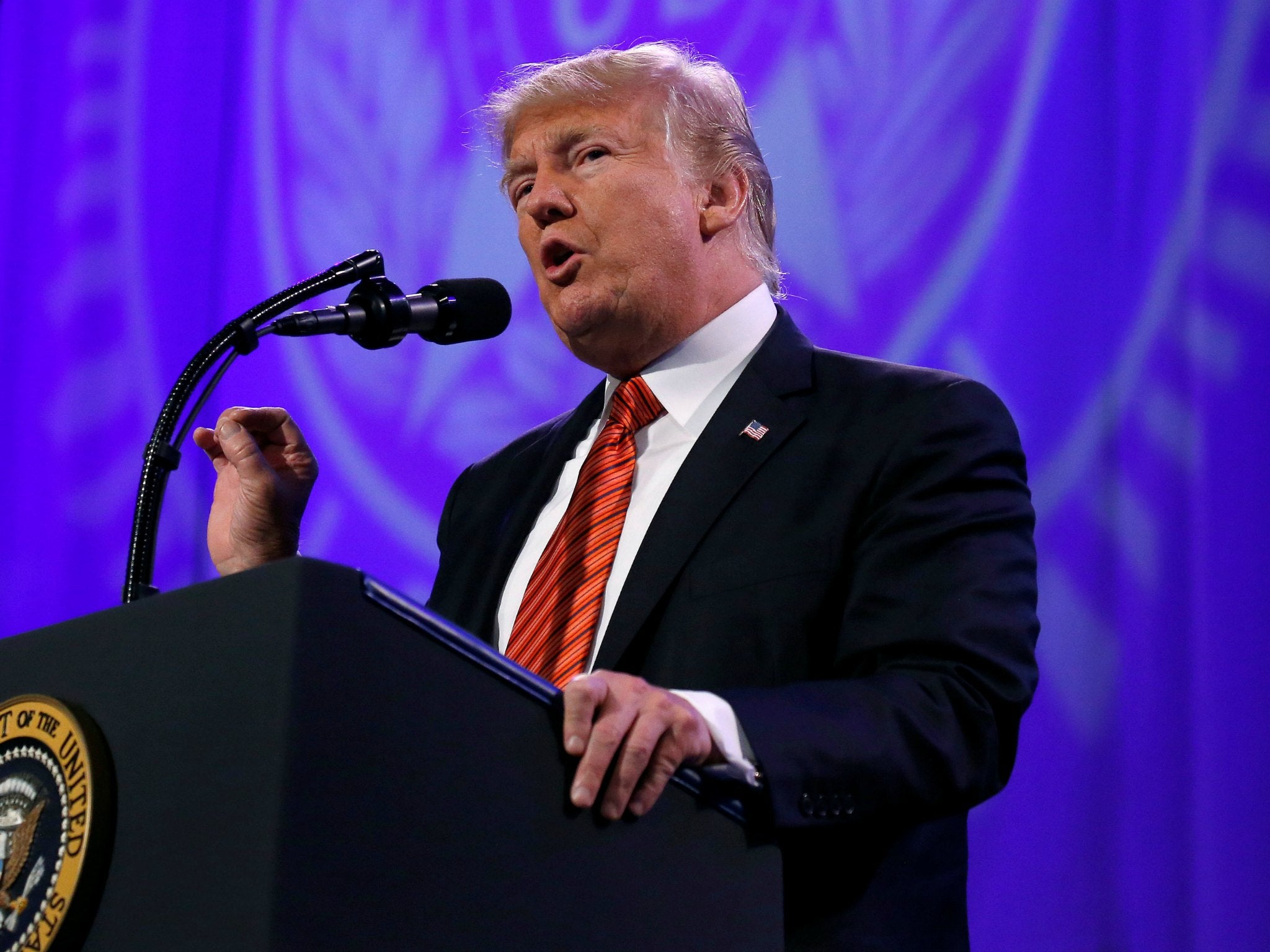Donald Trump's lack of understanding of the tension between India and Pakistan risks destabilising the region
Trump's speech, which asked India to ‘help more’ with Afghanistan, amounted to calling for calm while also setting the house on fire

If Donald Trump had read this anecdote from a book by a former British Army Officer, the Afghan strategy he laid out on Monday might have been different.
In 2011, an American general in Helmand –a province in southern Afghanistan – brought together a group of village elders to win them over to the coalition cause. After the elders voiced their concerns, it was time for him to respond. He stood up and said: “Over the last thirty years, Afghanistan has been plagued by terrorists and Mujahedin... I am here to clear them from the country.”
At this point the mood in the room changed and a frenzied chatter broke out. Why?
Many of the village elders, the very people the general was so keen to win over, were the ex-Mujahedin. A similar ignorance of local dynamics was on display again in Trump’s speech.
There were at least two clear changes in the new Trump strategy for Afghanistan. First, Trump put all tact aside and rebuked Pakistan in the most stinging terms, saying the US would no longer allow it to provide a “safe havens for terrorists.” The second change was a surprising call for India to do more in Afghanistan. On this he said, “...we want [India] to help us more with Afghanistan.”
President Trump may not have realised this, but these two policies directly contradict each other. In fact, applying both policies in the same strategy shows a dangerous lack of awareness of why Pakistan has been playing both sides by supporting Nato while simultaneously harbouring militant groups, including the Taliban’s powerful Haqqani network.
A key reason Pakistan harbours Afghan terrorists is to protect itself from India. The two nuclear-powered neighbours have been in three major wars since independence and their relationship is perpetually charged. Some see instability in Afghanistan as creating an essential space to retreat and regroup if the more powerful Indian Army attacks.
Pakistan is also wary of Indian influence in Afghanistan –military or otherwise – because it could leave them exposed on two borders. So, asking India to increase its involvement in Afghanistan was about the best way of making sure Pakistan continues its policy of abetting terrorists. It amounts to calling for calm while also setting the house on fire.
There were two other problems with this approach of talking to both Pakistan and India. First, Pakistan is a recalcitrant yet critical ally in the “War on Terror” and critical Nato supply routes go through the country. Pakistani leaders must have been left fuming when Trump asked their nuclear nemesis to intervene in their backyard.
Antagonising it may backfire, because what Islamabad is likely to do now is grow even closer to China. China is already planning to spend $55bn as part of a new infrastructure project and its growing military partnership is underlined by a Pentagon report suggesting it wants to open a military base in Pakistan. The speech threatens to push Pakistan further into China’s arms.
Finally, calling on India to do more simply will not work. India does not share a border with Afghanistan and their relationship is quite sour. They signed a Strategic Partnership Agreement in 2011, but India has sometimes refused to even schedule bilateral meetings; it feels the current president, Ashraf Ghani, has been too close to Pakistan for its taste. If India had the will to do more in Afghanistan, it would have already done so. It’s a game India has chosen not to play and Trump’s invitation will not change that.
So, calling for India to do more in Afghanistan was an error with high costs and no benefits. It angered Pakistan and is unlikely to move India into action. Clausewitz, the Prussian general and military thinker once said: “The supreme, the most far-reaching act of judgement that the statesman and commander have to make is to establish…the kind of war on which they are embarking.” Trump does not seem to know the war he is fighting. The US and its allies will pay a steep price for his ignorance.
Abhishek Parajuli is a Clarendon Scholar of Politics at Oxford and a Peter Martin Fellow at the FT
Join our commenting forum
Join thought-provoking conversations, follow other Independent readers and see their replies
Comments